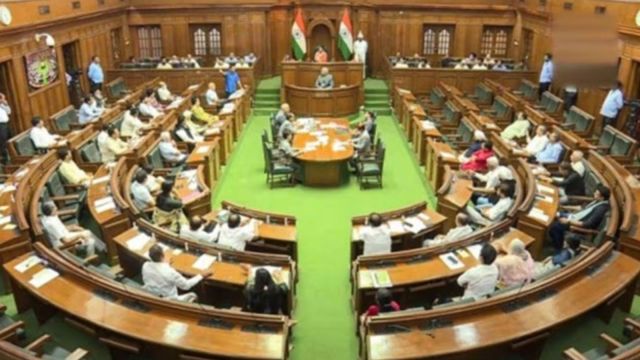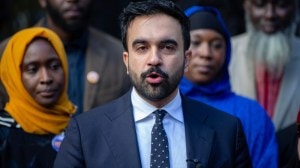Monsoon Session of the Assembly: Private school fee regulation Bill cleared after four-hour debate
Calling the Bill “a beautiful law in the interest of the people of Delhi and the parents", CM Gupta claimed it to be “the end of a 52-year exile for parents”
 Tabled by Education Minister Ashish Sood earlier this week, the Bill was introduced in response to the massive protests by parents against fee hike in the Capital this year (File)
Tabled by Education Minister Ashish Sood earlier this week, the Bill was introduced in response to the massive protests by parents against fee hike in the Capital this year (File)The BJP-led Delhi government’s first Bill regulating fee hikes by recognised private unaided schools was passed by the Delhi Assembly after a heated four-hour debate on Friday.
All eight amendments proposed by AAP to the Delhi School Education (Transparency in Fixation and Regulation of Fees) Bill, 2025, were rejected during voting by the BJP-led House. The legislation will now be sent to Lieutenant Governor V K Saxena for approval.
During division of votes, 41 ruling BJP MLAs and 17 AAP legislators were present in the House.
Tabled by Education Minister Ashish Sood earlier this week, the Bill was introduced in response to the massive protests by parents against fee hike in the Capital this year.
The Bill mandates a three-tier committee at the school, district and state levels – comprising parents and teachers – which will approve the hike in fees.
Sood assured the House that audits and financial scrutiny would remain mandatory when the Bill is implemented. “If even one parent member in the committee disagrees, the proposal will not be approved. They will have veto power. Management cannot impose its will,” he added.
Leader of Opposition, AAP’s Atishi, however, accused the government of siding with school managements. “This Bill is only and only in the interest of private school owners,” she said.
Recalling protests earlier this year when parents faced steep hike in fees, she added, “In 40-degree heat, parents stood outside schools… Children were stopped from entering schools and held like hostages. Now, the increased fees of April 2025 have been made the basis of this Bill.”
She also warned that requiring 15% of the parents in a school to file a complaint against fee hike would make the redressal mechanism harder.
To this, Chief Minister Rekha Gupta said, “If we had made the requirement 25% (percentage of parents needed to file a complaint), they would say why not less… This Bill will bring transparency, strict penalties for violations, and ensure education is seen as a temple of learning, not a shop for profit.”
Calling the Bill “a beautiful law in the interest of the people of Delhi and the parents”, Gupta claimed it to be “the end of a 52-year exile for parents”. She said that previous governments had failed to tackle the issue, leaving Delhi with “schools in tin sheds and 20,000 vacant teacher posts”.
Previously, the Bill had received opposition from parents groups, who claimed the proposed framework lacked transparency, as it was drafted without consultation with stakeholders and allegedly gave disproportionate control to school managements.
Bill at a glance
- School Level Fee Regulation Committee to be set up, including five parents as members
- District Fee Appellate Committee, also including representatives of parents, will decide on fee if school panel fails to decide on fees
- District committee to decide fee within 30 days, maximum within 45 days
- Parents can approach Revision committee within 30 days
- Revision committee’s decision final for 3 years; it has to decide in 45 days
- In case of violation, first penalty on school is Rs 1 lakh, can extend to Rs 5 lakh
- Second or subsequent violation can attract penalty of up to Rs 10 lakh







